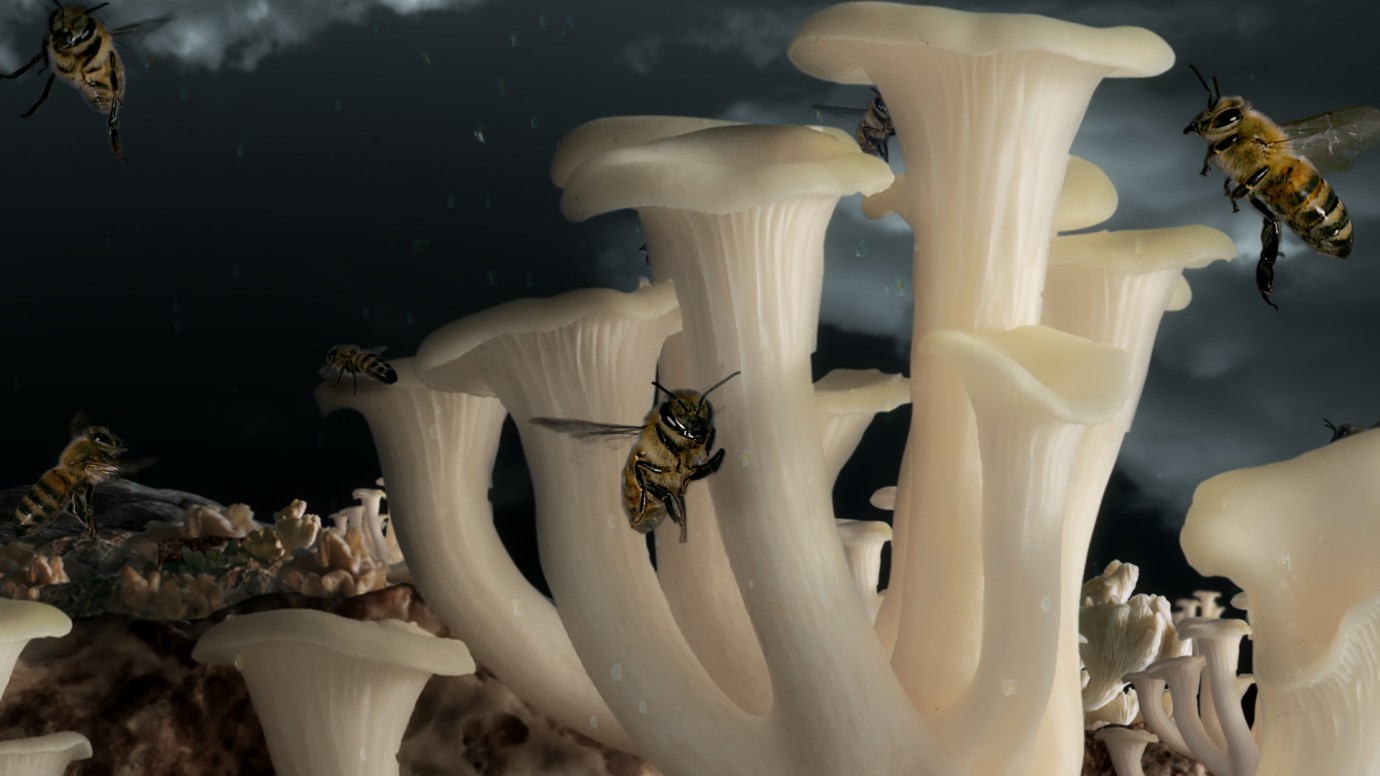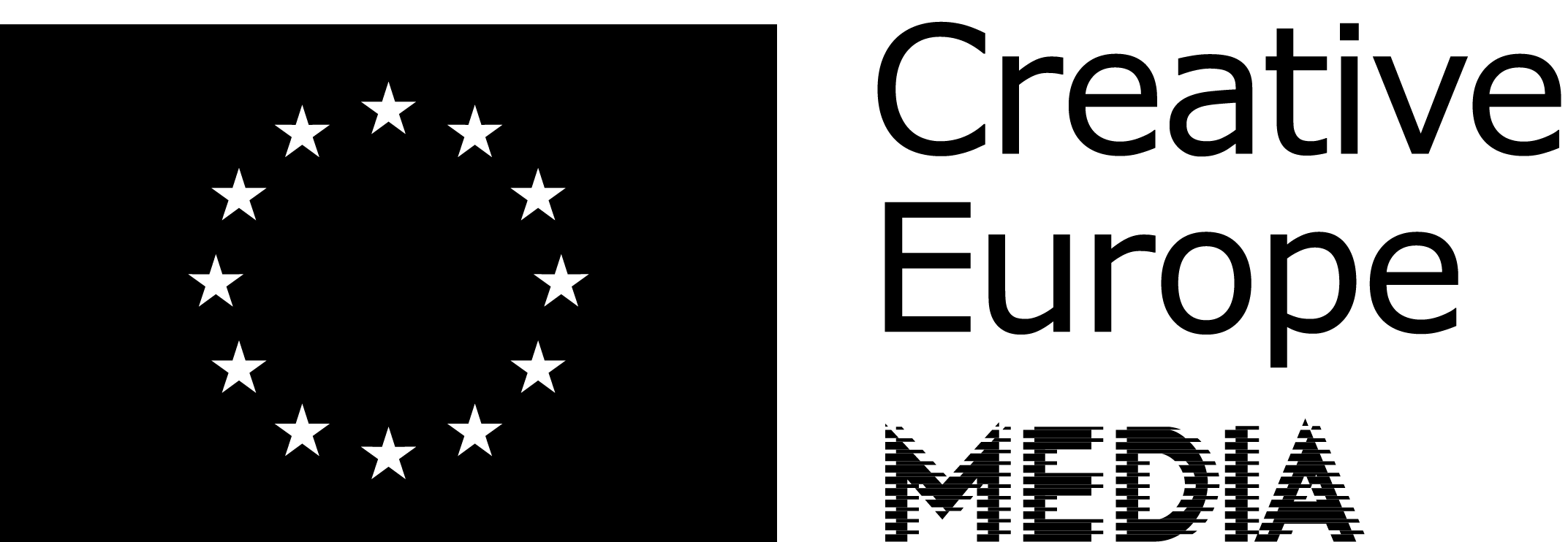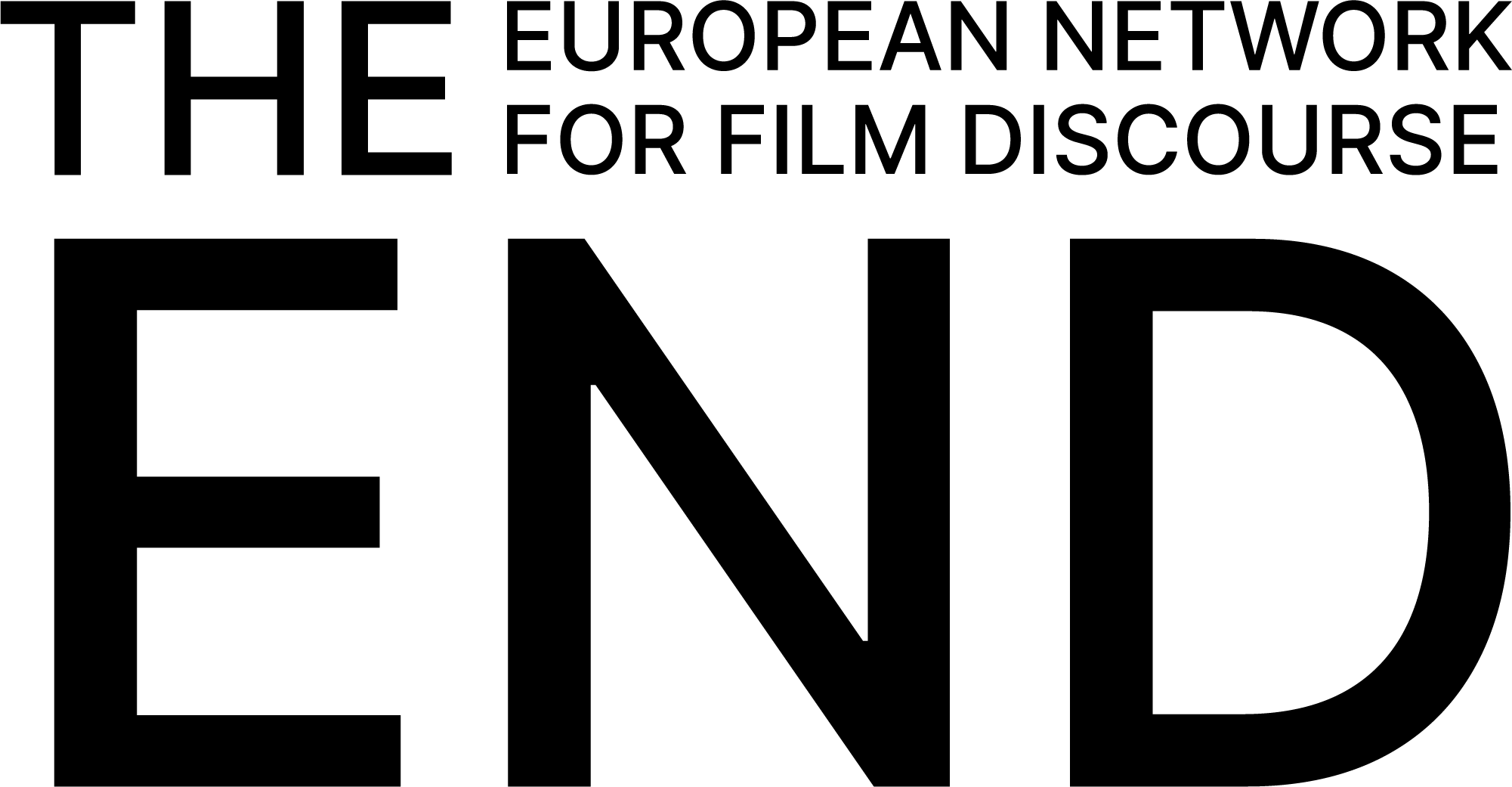FeKK Correspondence: Dream Technologies
As part of our FeKK Ljubljana Short Film Festival coverage, participants of the European Workshop for Film Criticism #7 share thoughts on David Lynch, Momoko Seto, and more.

Dear Emily,
The 11th FeKK Ljubljana Short Film Festival proved as hospitable and welcoming to its guests as it was to the diverse shorts that made up its lineups. The edition’s motto, “Keep the Dream Burning”, an omnipresent and unifying thread, sees dreams as very malleable. In between tasting the Slovenian traditional cuisine and swimming in mountain lakes close to Ljubljana, I enjoyed watching the International Competition titles at the festival’s late-night open-air screenings—those that didn’t get derailed by the weather that betrayed us halfway through the week.
The international competition is devoted to films from the Balkans, some of which this year shared similar narratives, motifs, and moods. An overwhelming majority came across as pessimistic, which made for a friction with the edition’s boisterous rallying cry to keep one’s dreams alive. Home was a ubiquitous theme, as seen in shorts—like Pirateland (2025) or Elysian Fields (2025)—that tied it to the notion of one’s native turf. Motherhood and family were other recurrent concerns addressed by films such as Mother Died Today (2024), Thank You, Mother (2024), or Fačuk (2025).
An animated film and Croatian-Slovenian coproduction, the latter was one of the few international competition films I enjoyed. Inspired by the dreamlike landscapes of Croatian naive artist Mijo Kovačić, Fačuk unfolds as a fairytale that conceals its unmerciful core beneath breathtaking backdrops and fantastical imagery. In a god-fearing village somewhere in the Balkans, a “fačuk”, an illegitimate child, is received as a bad omen that threatens to upend the rural community and ostracise its mother. Violating God’s “natural” law is to incur His wrath and a merciless way to mete out justice. As in Hieronymus Bosch’s nightmarish art, Kovačić’s reveals the wickedness that we all carry inside ourselves through a series of paintings depicting a group of peasants contorting grotesquely over each other, much like reptiles crawling and fighting over their prey.
“What the devil gives, God takes back,” say the babushkas as they swarm around the pregnant mother-to-be. In this seemingly women-only village (men are always away, either working the fields or tending to the sheep), superstitions and incantations are the universal ointments. These rites ensure luck and prosperity throughout the year, but also ward off evil spirits, such as that of an unborn child. God’s wrath comes across as more of a resetting power, which uses the water’s primordial force to reestablish nature’s reign once again. This ecological primitivist approach targets the close-mindedness of Balkan societies, while the short unfolds as an entertaining flow of imagery carefully crafted to homage the Croatian painter.
Elsewhere in the lineup, FeKK devoted a retrospective to Japanese filmmaker Momoko Seto. Promisingly titled “Instant Cult”, the programme included an intriguing post-screening panel: a conversation that vowed to locate possible connections between Seto and David Lynch, and establish her as his successor in a 21st-century “surrealist” lineage. Momoko Seto’s retrospective consisted of her Planets trilogy, which the director sees as an attempt to decentralise our anthropocentric gaze, and a couple of more conventional shorts that shift the focus back to humanity, the first one about small-scale community crises during natural disasters, and the second about Seto’s relationship with her late grandfather.
I found Seto’s trilogy more worthy of discussion, not least because she has now expanded her solar system into a feature-length film, Dandelion’s Odyssey, which premiered at Cannes’s Critics Week earlier this year—but didn’t screen at FeKK. The triptych imagines a universe untouched by humans, in which otherwise mundane and imperceptible parts of nature take on gigantic proportions. By bringing the invisible into light, Seto wants her audience to experience a sense of unease that is deeply rooted in the macrocosm of steel and concrete they’re trapped in, disconnected from all things natural.
Planet A shows the emergence of life, namely water, as it spills from the cracks of some brutalist-looking salt formations. A dead sea revitalises itself; a glimmer of hope shines again. In Planet Z, life is already rich and flourishing, but the coexistence between species doesn’t seem to last long. In a bid for supreme control over flora and fauna, fungi are penetrating all organisms and destroying the blissful Eden. Lastly, Planet Σ homes in on insects, and bees especially. With temperatures increasing due to global warming, the bees emerge from their hibernation in ice and begin their new life cycle in a highly industrialised and unfamiliar ecosystem.
Intriguing as they may sound on paper, Seto’s films seem more concerned with merely describing the diverse fauna and flora as opposed to advancing any ideas around their evolution and survival. As a colleague noted, the shorts would work just as well as computer screensavers, and I can only agree. They are feats of technology and technicality, using time-lapse and macro lenses to capture the imperceptible and craft visually appealing shots. However, those visuals do not create a compelling universe, nor do the shorts ever manage to present any sort of critique.
David Lynch and Momoko Seto’s retrospectives were the only two held at FeKK this year, and the festival sought to identify parallels between the two by uncovering their supposedly mutual penchant for surrealism. But the panel that was meant to provide evidence for that connection, titled Surrealism In Film: From David Lynch To Momoko Seto, turned into a back-and-forth exchange of truisms between Seto and FeKK curator Robert Kuret, never mind critic Savina Petkova’s skilful moderation and attempts to add some structure to the talk. Much as the festival would like you to think otherwise, Lynch and Seto are so far apart from each other that finding parallels between them would be like bringing together two completely different planes of existence.
I look forward to hearing your perspective on this festival, Emily, and hope to meet you again in London soon—hopefully with better weather.
Until then,
Alex

© Intervalometer Experiments (David Lynch, 2005)
Dear Alex,
The oneiric was at the flaming heart of this year’s FeKK Ljubljana Short Film Festival. The slogan “Keep the Dream Burning” gestured towards cinema’s ability to ignite our collective imagination, harking back to militant and activist legacies of its short form. Fittingly, the 11th edition of the short film festival hosted a focus on Palestinian stories, featuring eight short films across two screenings that spotlighted how filmmakers have documented resistance and constructed counter-narratives against decades of erasure.
A personal highlight from the programme was Razan AlSalah’s Your Father Was Born 100 Years Old, and So Was the Nakba (2017), an inventive desktop essay depicting a Palestinian grandmother traveling back to her native Haifa through Google Street View, the only way she can after the Israeli state barred Palestinians from returning to their land. As she navigates through once-familiar streets now renamed from Arabic to Hebrew, the stretch effect designed to mimic a sense of forward momentum highlights the absurd dissonance between this illusion of mobility and the reality of exile and checkpoints. The ongoing genocide in Gaza has exposed the global economy’s vast and intricate entanglements with Israel, with Big Tech being one of its most complicit industries. AlSalah zooms into the pixelated sky to reveal a Google watermark. Every inch of the land is captured as data and transformed into an easy-to-use interface, one cleanly wiped of any trace of erasure. She superimposes archival photographs of the same location over the street-view images, where they hover like apparitions for a split second before fading away. Against the omniscient mastery of the 360-degree camera, her digital intervention refuses its violence of normalisation, mournfully historicising its contextless images.
I experienced a similar disembodiment with Japanese director Momoko Seto’s Planet trilogy: Planet A (2009), Planet Z (2011), and Planet Σ (2014). Screened as part of a focus on the filmmaker titled “Life always finds a way”, the three shorts explore the natural world on temporal and spatial levels beyond human perception. Seto employs time-lapse to condense the blooming of mold on the surface of a strawberry from a process of days into seconds, as well as extreme close-ups to transform an otherwise mundane rotten fruit into a cosmic orb of alien beauty. Yet I’m suspicious of how much these films confront me with the strangeness of nature. Unlike the radical alterity of the evolving geologies in Deborah Stratman’s Last Things (2019), I’m left cold by Seto’s high-definition hyperreality. Instead of disrupting an anthropocentric gaze, her glossy images readily offer themselves up for consumption, flattening the mysteries of life into empty spectacle.
The timelapse returned unexpectedly in the form of David Lynch’s Intervalometer Experiments (2005), part of the festival’s retrospective, which showcased many of the shorts the director made between 1966 and 2005. Using an intervalometer at three locations, he captures the changing light across a few hours, imbuing the footage with inexplicable dread via a droning soundscape. This is Lynch at his most observational: an unmanned camera takes a photo every few seconds, reminiscent of the earliest moving images that used chronophotography, such as Eadweard Muybridge’s The Horse in Motion (1878). Sunlight recedes along a staircase, and the shade of leaves encroaches upon it with a terrifyingly inexorable force that can’t be attributed to the Earth’s orbit alone. What is usually defined as “Lynchian”—the revealing of the uncanny in the mundane—is illustrated through the simplest cinematic grammar, creating an unnerving drama of shadows. In the final part of the film, Sunset #1, the shifts in light are barely noticeable until darkness cloaks the frame, giving rise to a turbulent sea of VHS static. The longer I stare at it, the more the image mutates: from a mass of writhing insects to rapidly mitosing cells under a microscope. If Seto’s planets are like carefully controlled laboratory tests, Intervalometer Experiments is a child’s half-abandoned science project, one where the contingencies of nature and technology open up the imagination to ominous possibilities.
I agree with you, Alex, that it’s odd to compare David Lynch, who had firmly cemented his status in the pantheon long before his passing away earlier this year, to Seto, who just premiered her first feature Dandelion’s Odyssey (2025) at Cannes. But that’s exactly what the festival did, in a panel titled Surrealism In Film: From David Lynch To Momoko Seto, where Seto herself was quick to mention that her films were not, in fact, surreal. Perhaps the most cogent parallel brought up in the discussion was how both filmmakers “make the invisible visible,” and how this can unlock new ways of seeing beyond the dominant narratives of mass media. Does seeing more, as Seto’s ultra-high-resolution cameras invite us to, let us see differently? If we are to truly gain a new perspective of the world, then perhaps we have to let go of any illusions of mastery over it: after all, we have no control over the dreams that bubble up from the depths of our subconscious to haunt us every night.
If you want to find me, I’ll be outside the cinema smoking a cigarette with the official FeKK rolling paper—the best festival merch ever—to Keep the Green Burning.
See you soon,
Emily
This text was developed during the European Workshop for Film Criticism #7—a tandem workshop set during Curtas Vila do Conde and FeKK – Ljubljana Short Film Festival—and edited by workshop tutor Leonardo Goi.
The European Workshop for Film Criticism is a collaboration of the European Network for Film Discourse (The END) and Talking Shorts, with the support of the Creative Europe MEDIA programme.





